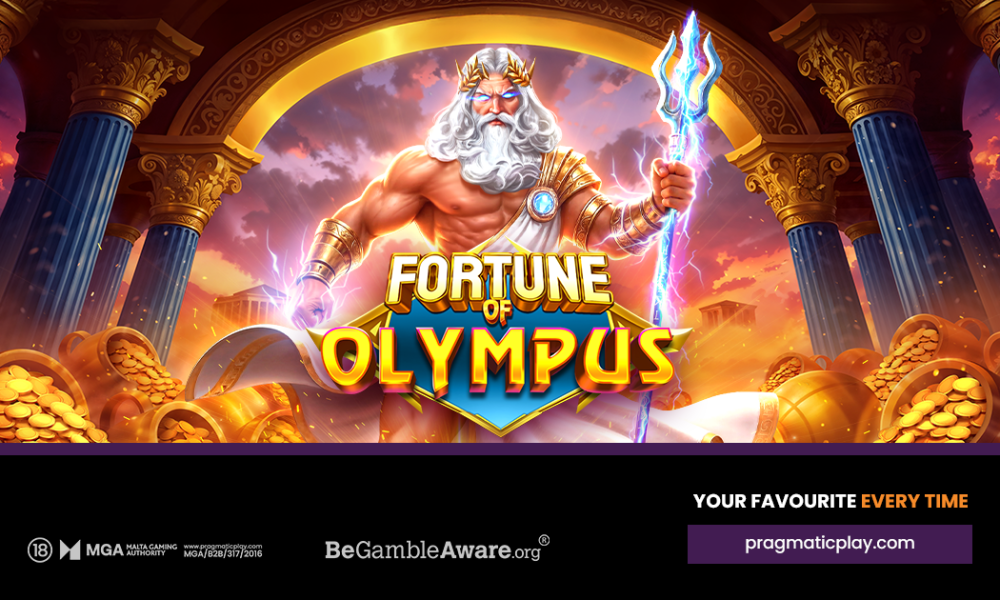Latest News
Global bettors demand payment choice, speed, and security in play
Paysafe’s annual ‘All the Ways Players Pay’ report reveals insights from 4,300 online sports bettors across Europe, North America, and LATAM
A positive payment experience makes 82% of global online sports-bettors stay to continue wagering with sportsbooks, according to new research released today by leading payments platform Paysafe (NYSE: PSFE). Beyond player retention, the latest ‘All the Ways Players Pay’ annual report underscores the critical role payments play in customer acquisition and the importance of sportsbooks offering localized cashiers with alternative payment methods (APMs) to ensure payment choice plus fast and secure transactions.
The 2025 edition of the report, which includes Latin America for the first time, reveals players in the region share North American and European bettors’ priorities when choosing a sportsbook. Globally, quick and easy payouts are the top factor in sportsbook selection, with 34% of bettors prioritizing payout speed over brand trust (33%), promotions, and odds (both 24%), user experience (18%), and sports market variety (17%). Cashing-out quickly is particularly important to bettors in Romania (prioritized by 42%), the U.S. (41%), and Argentina (37%).
Beyond payouts, global players consider other payment factors more important than everything else except brand trust. Bettors seek rapid deposits (25%) and the availability of their preferred payment methods (also 25%) when choosing a sportsbook.
Players’ desire for diverse payment preferences demonstrates the importance of operators maximizing payment options. In the regions surveyed, debit cards remain the top payment choice (42%), trending even higher in Mexico (63%) and Peru (56%) as well as in jurisdictions that ban iGaming credit card transactions like the U.S. state of Tennessee (51%) and the U.K. (48%).
Despite restrictions, credit cards are preferred by 24% of players globally and remain the top payment method in France (39%). But APMs like digital wallets are challenging cards’ popularity. Digital wallets are a top choice for 38% of global players and are even more popular in Argentina (52%) and densely populated U.S. states like New York (48%) and Florida (46%).
Interest in local payment methods (LPMs) available only in specific regions is robust in the U.S. (16%), where Venmo is popular, but trends highest in Colombia (29%) and Ecuador (24%).
Against the backdrop of a resilient cash culture, LATAM players favor eCash for iGaming, with 30% of Colombians and 25% of both Peruvians and Ecuadoreans considering it a preference, though cash’s popularity also stands strong in Spain and the U.K. (both 22%).
In addition to localizing their cashiers, operators need to focus on transactional speed. With players demanding rapid payouts, 42% of global players expect to cash-out instantly. And 34% consider fast deposits critical to their payment experience, trending highest in Colombia (45%) and Ecuador (43%).
Transaction security is even more important, with 41% of global bettors prioritizing this in their payment experience. Players in Argentina (51%), Peru (48%), and Colombia (46%), as well as Romania (44%) and Italy (43%) appear particularly sensitive to security concerns.
Players’ confidence in the security of their transactions continues to improve, with 66% more confident than a year ago, though there’s no room for operator complacency, with 8% less confident and 26% on the fence. These doubters almost certainly impact operators’ revenue, with 32% of players who’ve not wagered in 6+ months saying fraud concerns were their major blocker.
Looking ahead, players reveal a strong appetite for real-time payments, with 73% expecting this to become the norm at sportsbooks within two years. Over the same period, adoption of APMs like digital wallets and eCash will likely grow, with 60% expecting to wager more with one. Bettors in Colombia (85%) and Peru (81%) are particularly bullish on upping the ante with APMs.
“Our latest ‘All the Ways Players Pay’ research report surveys online sports bettors’ transactional preferences across an unprecedented range of regulated markets in the Americas and Europe,” said Zak Cutler, President of Global Gaming at Paysafe. “Payments are crucial for player acquisition and retention in every single market, but there can be no one-size-fits-all approach. Operators will only maximize conversions and minimize churn if they localize their cashiers and respond to player demand for an exhaustive range of payment options that balance transactional speed with security.”
The post Global bettors demand payment choice, speed, and security in play appeared first on European Gaming Industry News.

Latest News
13 gambling company executives in appeal against ATG’s proposal to raise gambling tax in Sweden
BOS – The Swedish Trade Association for Online Gambling – is today submitting a letter to the government. The letter is signed by 13 gambling company executives and BOS’s secretary general. In the letter, the signatories urge the government not to support the gambling company ATG in their proposal to raise the general gambling tax in favour of a reduction in the tax on horse racing.
As a main argument, the signatories highlight the fact that the level of the gambling tax affects the proportion of consumers who choose to gamble on the legal licensed gambling market, and that too many consumers are already opting out of the safety of the licensed market with its extensive consumer protection.
“Horse betting has a channelisation rate of between 98-99 percent. Online casino, according to the most optimistic estimates, has a channelisation rate of between 72-82 percent. The higher the tax, the greater the risk that the consumer will choose unlicensed gambling, where neither gambling tax nor consumer protection exists. To then lower the gambling tax for horse betting, which already has a very strong channelisation, and raise it for online casino, which has a very weak channelisation, would be completely incomprehensible. At least for those who prioritize consumer protection,” says BOS Secretary General Gustaf Hoffstedt.
You can read the full letter here: Letter to Government on ATG gambling duty
The post 13 gambling company executives in appeal against ATG’s proposal to raise gambling tax in Sweden appeared first on Gaming and Gambling Industry Newsroom.
Latest News
Momentum Series: A Crash Gaming collection crafted for emotions in your online casino
FBMDS proudly unveils the Momentum Series, a crash gaming collection built to deliver fast-paced thrills, immersive visuals, and strong retention for online casino operators worldwide with the Piñata Rush, Magical Garden and Arctic Jumper titles.
Designed “for emotions” and “born to captivate”, the Momentum Series includes three high-performing titles — Piñata Rush, Magical Garden, and Arctic Jumper — that redefine the crash genre with dynamic gameplay, deep personalization, and stunning 3D environments.
The Momentum Series was created to give players more control, excitement, and emotional connection while providing operators with games designed for longer sessions and better retention metrics. Each title combines intuitive gameplay with high volatility, 97%+ RTP, and a responsive, mobile-first design, ensuring performance across devices and browsers. Players can personalize their experience with auto bets, double bets, and auto cashouts, adapting each round to their individual risk strategy.
Piñata Rush offers a colorful, multiplayer crash gaming experience set in lively Mexican-inspired streets. Players can track others’ progress in real time and enjoy a community-driven atmosphere that keeps engagement levels high. With 97.06% RTP and features such as Multiplayer, Auto Play, Auto Cash-Out, and a configurable Max Bet from 100x to 1000x, this crash game provides vibrant entertainment across Android, iOS, Mac OS, and Windows.
Magical Garden immerses players in a lush 3D fantasy world where serenity meets suspense. This single-player experience blends calm and thrill through Auto Play and Auto Cash-Out functions, allowing personalized strategies and a Max Bet configurable from 100x to 1000x. With 97% RTP, it offers operators a high-performing product with wide cross-platform compatibility.
Arctic Jumper brings adrenaline to the frozen north with a fully 3D single-player experience. Its immersive visuals and smooth performance are enhanced by Auto Play, Auto Cash-Out, and customizable betting options that match each player’s risk profile. Operating at 97% RTP, this title delivers consistent engagement and retention potential for competitive markets.
“The Momentum Series represents FBMDS’ evolution into crash gaming — a genre built on emotion, timing, and control,” said Renato Almeida, Director at FBMDS. “With Piñata Rush, Magical Garden, and Arctic Jumper, we’re delivering fast, flexible, and emotionally charged experiences that empower both players and operators.”
FBMDS brings a winning portfolio of innovative iGaming solutions, blending tradition with cutting-edge technology to deliver engaging, reliable, and profitable gaming experiences for operators worldwide. With a focus on slots, table games, video bingo, and now crash games, FBMDS empowers partners to scale and succeed in competitive markets.
The post Momentum Series: A Crash Gaming collection crafted for emotions in your online casino appeared first on Gaming and Gambling Industry Newsroom.
Latest News
Cozy Coast Launches Worldwide: Beach Adventure from InnoGames Now Available
- Sunny feel-good vibes for everyone: Cozy Coast now available for iOS and Android
- New trailer highlights entertaining storytelling, merge-2 puzzles, and diverse gameplay elements
- Upcoming updates with new events and challenges for long-lasting fun
A beach adventure with heart: InnoGames, one of Germany’s leading developers and publishers of mobile and browser games, today launches Cozy Coast worldwide, bringing sunny feel-good moments to smartphones and tablets. The game is now available for free on the App Store and Google Play Store. Players in selected regions have already explored the Mediterranean island of Calista and experienced the captivating story of the two protagonists Mia and Elara. The unique mix of merge-2 puzzles, exploration, and heartfelt moments is clearly resonating with players, earning 4.8 on the App Store and 4.6 on Google Play out of 5 stars.
With today’s launch, InnoGames expands the game’s language support. Alongside the existing languages German, English, and French, Cozy Coast is now also available in Italian, Polish, Portuguese, and Spanish.
New Features, More Events: Regular Updates for Lasting Fun
In Cozy Coast, players accompany best friends Mia and Elara on a journey across the picturesque Mediterranean island of Calista. For Mia, the island is filled with childhood memories, but its former charm has faded. Together, they set out to restore the island. The gameplay centers on merge-2 mechanics: By skillfully combining items, players fulfill the wishes of island residents, collect resources, and restore buildings to unlock new areas of Calista. Along their journey, Mia and Elara encounter interesting characters, discover secrets, and explore the environment.
Check out the trailer on youtube: youtube.com/watch?v=hpacBlPfio4
Since the initial launch of Cozy Coast in selected regions, the development team has steadily expanded the merge-2 adventure. Customizable portraits, 3D decoration events, special quests with unique rewards, and advanced challenges for experienced players ensure there’s always something new to discover. The holiday season has also arrived: players can earn daily rewards, including the festive avatar “Winter Elara”.
Key Features of Cozy Coast
- Merge items: Strategically combine items to create new and higher-value objects
- Restore the seaside promenade: Renovate abandoned buildings to unlock new areas
- Adventure in paradise: Follow best friends Mia and Elara as they discover hidden places and uncover the secrets of a corporation with questionable intentions
- Characters with personality: Meet fascinating characters. Every encounter comes with a story – sometimes touching, sometimes mysterious, but always full of emotion
- Fresh challenges every day: Participate in competitive, daily, weekly, and seasonal events like exploration quests, puzzle collections, decoration and special story-driven missions to receive exciting rewards and enjoy lasting gameplay
- A personal touch: Use portrait customization to bring individuality and personality to every adventure.
- Unwind in a Mediterranean setting: Experience stress-free gameplay paired with a captivating story of friendship, courage, and hope
- Free to play without restrictions: Available worldwide on iOS and Android (except in Russia and China)
Cozy Coast is available on the App Store for iOS and on Google Play for Android.
For the latest news about the game, visit the official website or follow Cozy Coast on Facebook, Instagram, TikTok, and YouTube.
The post Cozy Coast Launches Worldwide: Beach Adventure from InnoGames Now Available appeared first on Gaming and Gambling Industry Newsroom.
-
Latest News3 months ago
Announcement: 25th September 2025
-
Latest News3 months ago
AI-Powered Gamification Arrives on Vegangster Platform via Smartico
-
Latest News1 month ago
JioBLAST Launches All Stars vs India powered by Campa Energy: A New Era of Creator-Driven Esports Entertainment
-
Latest News3 months ago
The Countdown is On: Less Than 3 Months to Go Until The Games of The Future 2025 Kicks Off in Abu Dhabi
-
eSports1 month ago
CS:GO Betting Gains Momentum in the iGaming Sector
-

 Latest News5 days ago
Latest News5 days agoSCCG Announces Strategic Partnership with Yellow Elephant Studios to Expand Multi-Channel Gaming Content Worldwide
-
Latest News3 months ago
Adidas Arena Set to Welcome the 2026 Six Invitational
-
Latest News3 months ago
LiveScore Group announces transformational partnership with X and xAI to drive the future of integrated sports media and betting













You must be logged in to post a comment Login